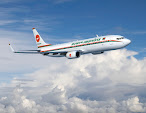 About 67% people of Bangladesh are directly or indirectly associated with farming in Bangladesh. Land being exceedingly fertile, the agricultural possibilities of Bangladesh are huge. Bangladesh is the 4th largest rice producing and the 2nd largest jute producing country in the world.
About 67% people of Bangladesh are directly or indirectly associated with farming in Bangladesh. Land being exceedingly fertile, the agricultural possibilities of Bangladesh are huge. Bangladesh is the 4th largest rice producing and the 2nd largest jute producing country in the world. Bangladesh also holds a respectable position in growing various seasonal and tropical fruits. This sector of Bangladesh can become successful if the farmers are properly trained and modern technologies are applied. Bangladesh has an ample stock of natural resources as well. The country also has quite a large amount of natural gas. Besides, Bangladesh possesses some coal, hard rock, lime stone and silicone stockpile. At present, the Electric sector of the country is being operated by natural gas and coal. But due to the heavy demand, Bangladesh will very soon have to look for renewable sources of energy.
The main industries of Bangladesh are textile, readymade garments, tea processing, newsprint paper, cement, chemical fertilizers, sugar and light engineering.
Bangladesh is quite enriched in the Readymade Garment industry. Currently, it is the largest readymade garments and knitwear exporters in the world. Bangladesh also exports leather and leather products, tea, shrimp, fertilizer, paper, furnace oil, ceramic products, jute and jute based products.
Bangladesh mainly imports rice, wheat, cotton, petroleum, oil, seeds, edible oil, fertilizer, capital good, iron and steel from other countries.
Due to various obstacles, Bangladesh has had a 5% + economic growth over the last decade. The main investment sectors of Bangladesh are service, textile, chemicals, food and food related industries, glass and energy based products.
Leading group of companies in Bangladesh include Square, Transcom, Beximco, Aftab Group, Abul Khair Group, Partex Group and Bosundhara group.

Comments
Post a Comment